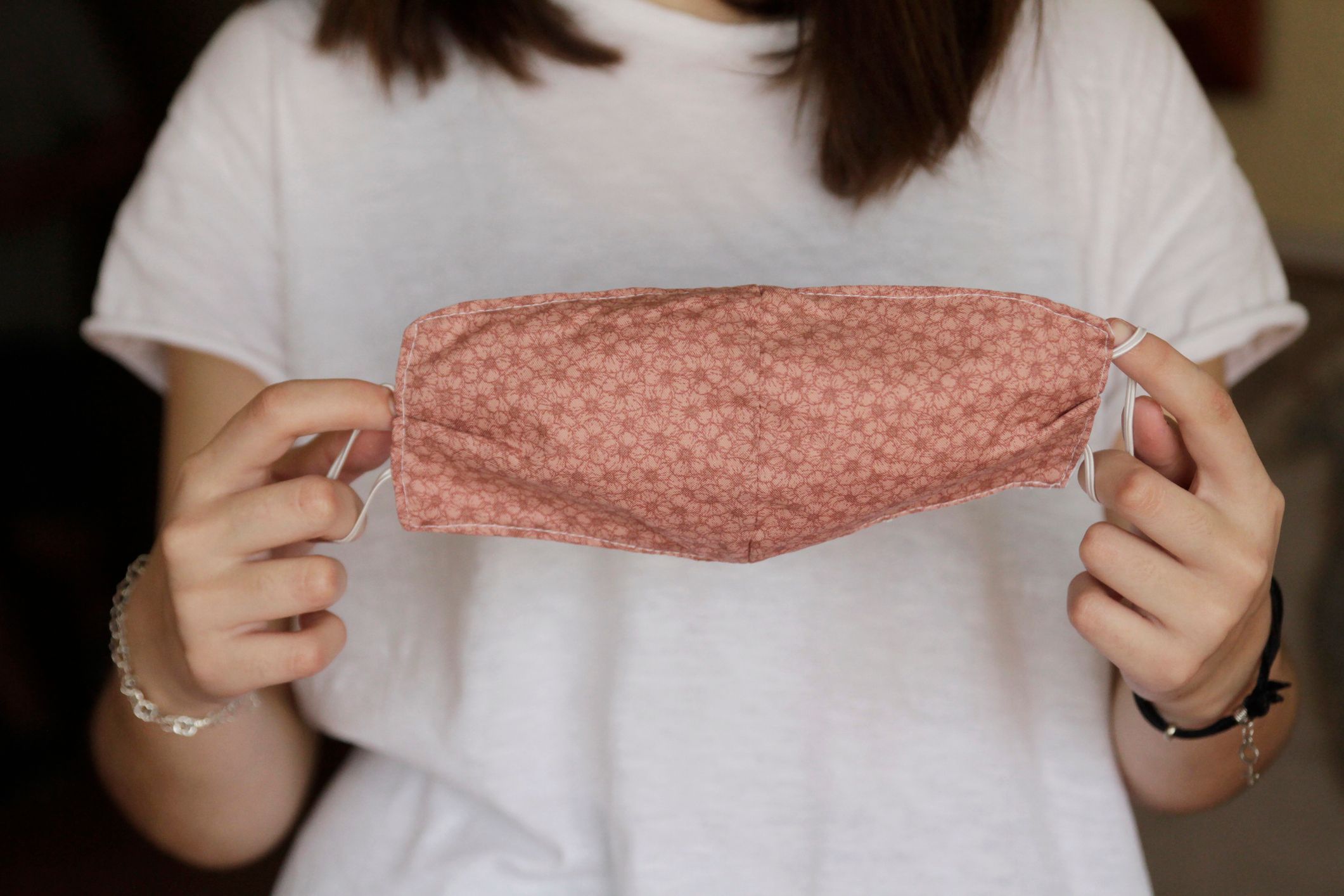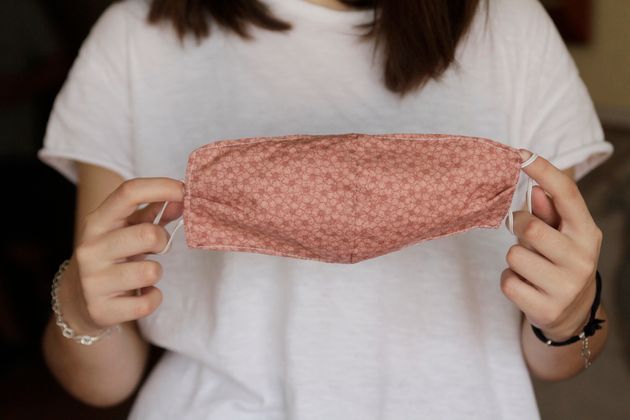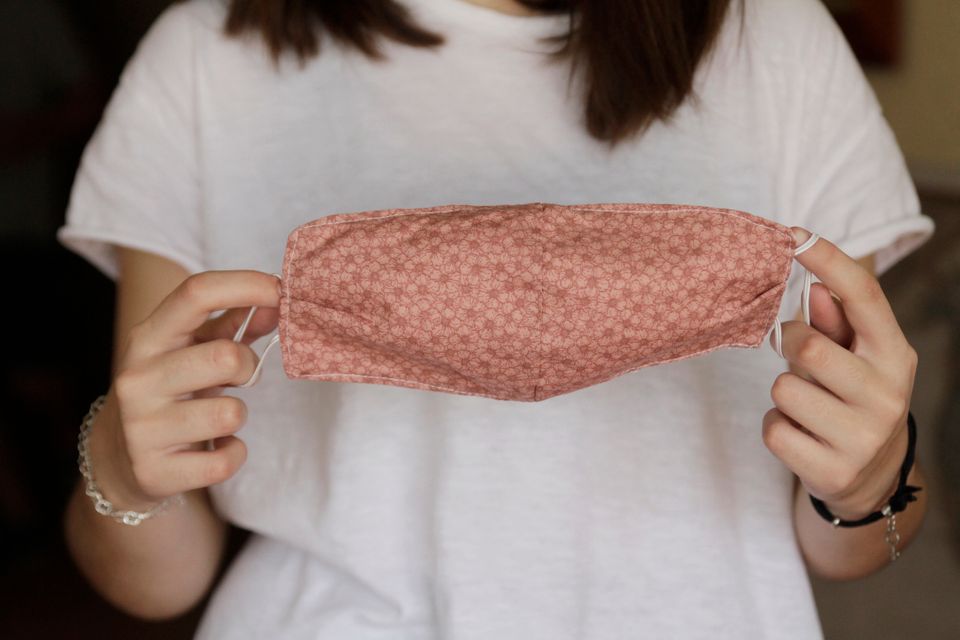
Under the latest Centers for Disease Control and Prevention guidance, more than half of the U.S. population lives in an area now considered to be low or medium risk for COVID, and residents there can go indoors without a mask. Many states have also loosened mask mandates, and a lot of workplaces no longer require employees to wear masks as a result.
If you’re still most comfortable with a mask on indoors in an office setting, you may suddenly find yourself to be in the minority. And when you are one of the only people with a face mask during meetings, it can feel socially awkward.
Advertisement
That’s why it can help to remember why masks are effective and to have a strategy in place if a colleague does inquire about your mask. Epidemiologists and other COVID experts weighed in on one-way masking benefits, and offered conversation strategies for mask-wearers:
1. Keep in mind that masks still work and we’re still in a pandemic.
If none of your co-workers are wearing masks, you may wonder if there’s a point to you wearing one. But well-constructed, tightly-fitting masks do offer protection, even when others are not wearing them, too.
“They do work. Somebody who is wearing a respirator in an office setting is going to get a fair degree of protection from doing that,” said Dr. Mark Rupp, chief of the Infectious Diseases Division at the University of Nebraska Medical Center.
Advertisement
“Any mask is better than no mask,” said Jose-Luis Jimenez, a professor at the University of Colorado Boulder and an aerosols scientist. “To make up for the fact that other people are not masking, you should wear a high-quality mask.”
Jimenez described high-quality masks as ones that are breathable, with a good filter that prevents most aerosols from being inhaled, and with a secure fit that has no gaps on your face, such as an N95 mask.
“Have the strength of your convictions and realize you may be the smartest person in the room”
– Dr. Mark Rupp, chief of the Infectious Diseases Division at the University of Nebraska Medical Center
And keep in mind the public health stakes. “What you are doing is minimizing the chance that you inhale a respiratory disease. That’s the big reason to stay masked,” said Charlotte Baker, an epidemiologist in public health at Virginia Tech. Although cases are declining in the U.S., there is still plenty of COVID out there. Around 1,800 deaths continue to be announced most days.
“There is no need to feel embarrassed or apologetic for wearing a mask,” Rupp said. “In most communities in the United States today the level of transmission continues to be substantial. … It’s headed in the right direction, but there is still a lot of COVID that is being transmitted in our communities.”
Advertisement
2. Understand that wearing a mask for your job doesn’t have to be ‘always’ or ‘never.’
Rupp said masking should not be seen as a choice between never wearing your mask at work or always having to wear a mask at work. You should be open to changing your mind depending on individual circumstances.
“You may feel safe and not wear a mask going into a setting where there is a lot of room and few people and a short duration of time,” Rupp said. “Whereas you might feel very uncomfortable making that same decision in a smaller, crowded setting that you are going to have to be present for an hour.”
Rupp cited your community’s virus transmission rates, your building’s indoor ventilation, your colleagues’ vaccination status, and your own health risks as factors to consider before taking off your mask. Here’s the CDC tracker for checking out your county’s transmission rates.
Be open to putting a mask back on as we learn more about the latest COVID developments, too. “Six weeks from now, or three months from now as a new variant starts to be described, they may decide, ‘You know it’s time for me to put the mask back on,’” Rupp said.
3. Remember that social awkwardness around masks is real, but it helps to remember your original reason for wearing one.
“Social pressure is very real. We can be talked out of anything if enough people dissent to our point of view,” said clinical psychologist Ramani Durvasula.
She cited social psychologist Solomon Asch’s research on conformity, which found people were more likely to give a wrong answer when they heard other people give that wrong answer out of a motivation to avoid conflict.
Your decision to wear a mask is none of your colleague’s business. You don’t owe anyone an explanation of why you are masking indoors, but if sharing one helps you feel less awkward, keep it brief, Durvasula advised.
“Make it about yourself and don’t turn it into a polemic on public health and responsibility,“ she suggested. “If a person chooses to wear a mask that is their right, but it can turn difficult if the mask-wearer frames it as virtue.”
Advertisement
Whether you are doing so to protect the health of others or for your own personal risk tolerance, Durvasula advised not engaging too much about it in the workplace: “Don’t take the bait.”
Baker said if it makes you feel more comfortable, it’s alright to deflect to another topic if it comes up or “just be stern one time, and say, ‘Look I’m going to wear it, I don’t want to hear anything else about it. It has nothing to do with you.’”
Pep talks can also help when you feel peer pressure, too. Baker shared what she tells herself when she finds herself to be one of the only maskers in social settings.
“I’m immunocompromised, so I tell myself I don’t want to die,” she said. “Two is: ‘I’m doing this for my family.’ I want to see my nieces, I want to see my nephews. I want them to grow up in a healthy world. If I wear my mask, I get to go see them. And I’m also setting a good example. And third is: ‘My mom is senior … and I need to keep myself healthy so I don’t get her sick.’”
Baker noted that for people who have become numb to pandemic risks, external motivations like a vacation or a concert you want to be healthy to go to can also help. “Whatever that motivator needs to be for you, figure out what it is. Write it down, so you see it,” she said.
Once you know your why, remind yourself of it when you want to waver from your original decision to wear a mask. And if you need an affirmation, take it from Rupp.
“Have the strength of your convictions and realize you may be the smartest person in the room,” he said.
Experts are still learning about COVID-19. The information in this story is what was known or available as of publication, but guidance can change as scientists discover more about the virus. Please check the Centers for Disease Control and Prevention for the most updated recommendations.









